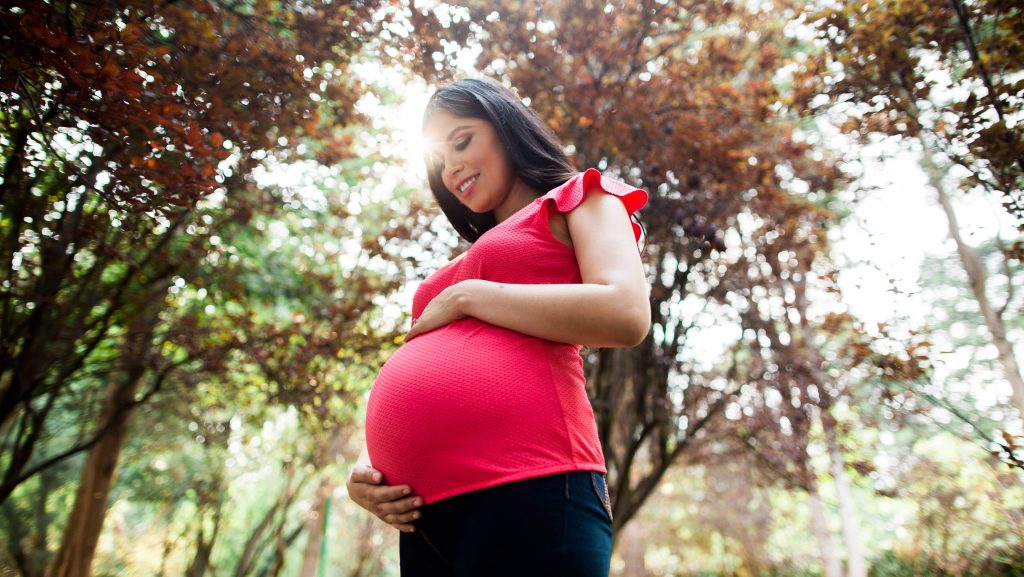-
Health & Wellness
Baby on board? Don’t let the heat put you in peril

LA CROSSE, Wis. ― With summer temperatures soaring, pregnant women need to be extra cautious to avoid heat-related health issues. The body's natural cooling mechanisms are already working overtime during pregnancy, making it more difficult to regulate temperature.
The challenge of staying cool during pregnancy
"Pregnancy makes it more difficult to keep our body temperature down," explains Abbey Rose, a certified nurse midwife at Mayo Clinic Health System in Tomah. "Our bodies have to work harder to keep us cool because we're not only cooling ourselves but also our babies. This means that pregnant women are more susceptible to heat exhaustion and heat stroke compared to nonpregnant individuals."
Heat can be particularly dangerous during pregnancy because an elevated core body temperature can lead to serious complications.
"You don't want your core body temperature to exceed 102 degrees," warns Rose. "This can lead to heat stroke or heat exhaustion, which are both dangerous for both mother and baby."
Hydration: The key to staying cool
Staying hydrated is one of the most important steps pregnant women can take to protect themselves in the heat.
"Water is always preferred," says Rose. "But fluids with electrolytes are also beneficial because we lose sodium and potassium through sweat. It's important to replace these, especially on hot summer days."
However, not all drinks are created equal. "Avoid caffeinated beverages like coffee, soda and certain teas, as they can dehydrate you," Rose advises. "Sports drinks and other sugary drinks shouldn't replace water. Pure water is the best and healthiest option."
Rose recommends pregnant women drink at least 64 ounces of water daily and increase that amount if spending time in hot weather.
"Your hydration needs to increase when you’re pregnant, especially in the heat," says Rose. "It's essential to stay ahead of your thirst. If you're thirsty, you're already behind on your hydration."
Practical tips for staying cool
- Dress for the heat: Wear loose, breathable fabrics, such as cotton or moisture-wicking clothes, to stay cool. Avoid tight items that can trap heat and cause discomfort.
- Seek shade: When planning outdoor activities, always look for shaded areas. "Try to stay under shade trees, near water or use a splash pad to keep cool," suggests Rose. "If you're going to a park, sit under a tree. If you're near water, keep your feet in it to help lower your body temperature."
- Recognize the signs of overheating: Pregnant women should be vigilant about the signs of overheating, which include increased sweating, dizziness, fatigue, unquenchable thirst and muscle cramps. "If you experience these symptoms, get out of the sun, hydrate and use cool cloths on your neck, armpits and groin to lower your body temperature," says Rose.
Understanding heat exhaustion and heat stroke
It's crucial to understand the symptoms and risks of heat exhaustion and heat stroke. Heat exhaustion symptoms include headache, dizziness, confusion, loss of appetite, nausea, extreme thirst and muscle cramps.
"If you experience these signs, move to a cool area," Rose explains. "Place cool washcloths or towels on your head, neck, armpits and groin. Hydrate, and you should start feeling better within 30 minutes."
Heat stroke, a more severe condition, includes symptoms such as not sweating despite feeling hot, high body temperature, shortness of breath, confusion, rapid breathing and seizures.
"These symptoms require immediate medical attention," Rose stresses. "Heat stroke can be life-threatening for both the mother and the baby."
Additional precautions
- Plan ahead: Always have an action plan for outdoor activities. "Pack extra water, ice packs, and have current medications handy," Rose advises. "Be aware of the heat index and air quality, especially if traveling. Be prepared to find air conditioning or a shady tree if you start to feel overheated."
- Use technology: The Centers for Disease Control and Prevention offers a Heat & Health Tracker app, which provides information on heat risk and air quality. "This can be a valuable tool for planning your day," says Rose. "You can input your zip code and get real-time updates on the heat index and air quality."
Rose also highlights the importance of recognizing when professional medical help is needed.
"If you haven't urinated in over 24 hours, or if you're experiencing frequent uterine cramps, contact your obstetrics department," she advises. "I've seen many cases where women underestimated the heat and ended up with serious complications. Many didn't realize how much fluid they need until they start feeling dizzy and experiencing cramps. Patients then come to the clinic needing IV fluids to rehydrate."
Final thoughts
"Pregnancy is a time of great care and precaution," Rose concludes. "The summer heat adds an extra layer of complexity, but with the right precautions and awareness, expectant mothers can enjoy the season safely. Always prioritize hydration, wear the right clothing, seek shade and be vigilant about the signs of overheating. Your health and your baby's health depend on it."
###
About Mayo Clinic Health System
Mayo Clinic Health System consists of clinics, hospitals and other facilities that serve the healthcare needs of people in Iowa, Minnesota and Wisconsin. The community-based healthcare professionals, paired with the resources and expertise of Mayo Clinic, enable patients in the region to receive the highest-quality physical and virtual healthcare close to home.
Media contact:
- Rick Thiesse, Mayo Clinic Health System Communications Department, 608-392-9435, thiesse.ricky@mayo.edu
Related Articles







